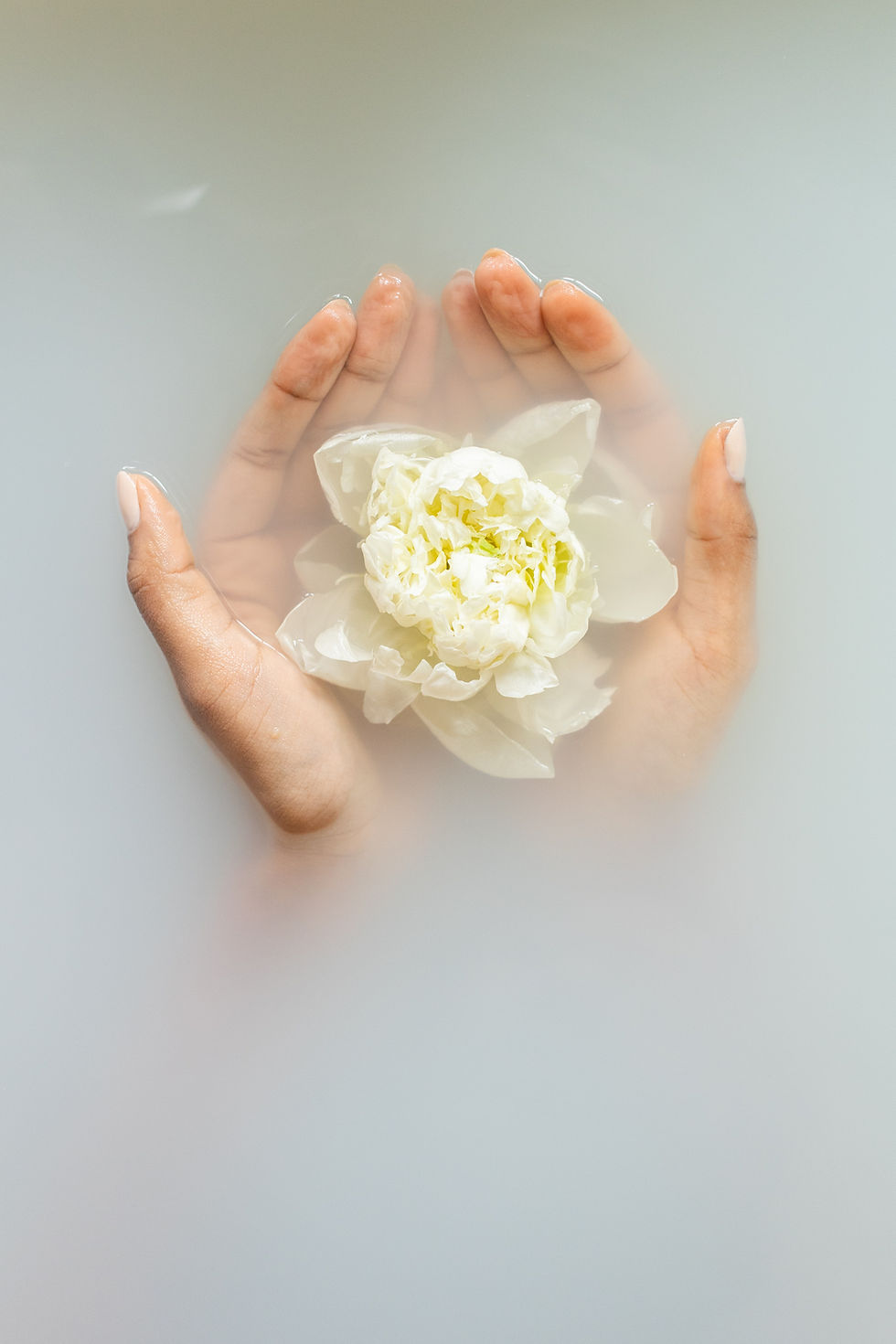Decoding the Claim "Clean Beauty"
- Alyssa Lee
- Sep 2, 2024
- 4 min read

The term "Clean Beauty" is everywhere in the cosmetics industry, drawing in consumers who want products that feel pure and healthy. After all, who wouldn’t want something labeled as ‘clean’? This word makes us think of simplicity, wellness, and even being environmentally friendly. But what does ‘Clean Beauty’ really mean? Let's break it down and see what this popular label truly stands for—not just in cosmetics, but in our everyday lives.
The Term "Clean Beauty" is Subjective
The term "Clean Beauty" is often seen as subjective, meaning it’s shaped by personal opinions, interpretations, and experiences rather than hard facts. What one person or company considers "clean" can be entirely different from another's perspective. This makes the term flexible and open to interpretation, unlike objective facts that are clear-cut, specific, and measurable.
In the cosmetics world, "Clean Beauty" generally suggests that a brand or product is made with ingredients that are seen as safe, non-toxic, and environmentally friendly. However, because it’s a subjective term, there’s no official or legal definition of what "Clean Beauty" or "Clean Ingredients" actually means. There’s no evidence to back up these claims, and it isn’t regulated or standardized by any governing body. This lack of regulation allows manufacturers to use the term as they see fit, leading to varying definitions of what "clean" really is from one brand to another.
The Rise of "Clean Beauty" in Cosmetics
Cosmetic companies have increasingly embraced "Clean Beauty" claims to meet consumer demands and boost profits. As concerns about potential health risks in cosmetic ingredients have grown, brands have quickly adopted this trend, labeling their products as "clean" to appeal to worried consumers. By branding their products as "clean", companies aim to appear transparent, sustainable, and more natural—a smart marketing strategy, no doubt. But here's the catch: without a clear definition, the term "Clean Beauty" can mean just about anything—or, in some cases,nothing at all. In reality, it’s often less about true safety and more about what's perceived as clean.
It's important to note that a product that claims to be ‘Clean’ or formulated with ‘Clean Ingredients’, does not mean that it is ‘All-natural’, ‘Organic’, ‘Environmentally Friendly’, or ‘Preservative-free’. It also does not necessarily mean that it is better for your or safer. It’s worth highlighting that there are some plant and fruit extracts, typically found in ‘Clean Beauty’ as well as ‘All-natural’ products, that are photo-sensitizing and potentially irritating to the skin. Since different brands have varying criteria for what is considered ‘Clean Beauty’, one brand’s definition may focus on avoiding specific ingredients, while another brand may have a broader set of criteria. Again, there is no set definition, so any brand can create their own. This can be confusing to consumers who may assume that all cosmetic products labeled as ‘Clean Beauty’ adhere to the same standards. [1]
"Clean Beauty" Can Be Confusing to Consumers
Consider this: Sephora and Ulta Beauty, two major cosmetic retailers, have different standards for what they label as "Clean Ingredients." For instance, Ulta Beauty excludes Benzyl Alcohol from their "Clean Ingredients" certified brands, while Sephora includes it in products that still carry their "Clean" label. This is significant because Benzyl Alcohol is recognized as a fragrance allergen by the European Commission, a fact you can verify on the FDA website here[2].
But it doesn’t stop there. Another fragrance allergen, Linalool, also flagged by the European Commission and listed on the FDA website, isn’t considered in the "Clean Beauty" criteria for either Sephora or Ulta Beauty. Fragrance allergens like these could pose health risks for some individuals, yet they aren't always excluded from products labeled as "Clean Beauty." This raises an important question: If these potentially harmful ingredients are present, what other ingredients might be lurking in so-called "Clean Beauty" products?
Cosmetic Companies Face Legal Battles Over "Clean Beauty" Claims
The buzz around "Clean Beauty" has led to a dramatic showdown in the courts. Cosmetic companies are facing lawsuits that challenge the authenticity of their "clean" claims, revealing that this popular label might not be as transparent as it seems. As consumers become more discerning and demand clear, honest information about what’s in their products, these legal battles are uncovering just how loosely defined "Clean Beauty" can be. The outcome of these disputes could dramatically change how beauty brands market themselves, making it a riveting and pivotal moment in the industry.
In November of 2022, a lawsuit was filed over confusion about products sold as 'clean' under 'Clean At Sephora'. According to the lawsuit, “a significant percentage of products with the ‘Clean At Sephora’ [label] contain ingredients inconsistent with how consumers understand this term”. The plaintiff argued that they relied on the products with the 'Clean At Sephora' label to not contain any ingredients that were synthetic nor “connected to causing physical harm or irritation.” (It's important to note that many consumers purchase cosmetics labeled as 'clean' at a much higher price over other products that are not labeled as 'clean' with the belief that these products labeled as 'clean' are 'better'). The class-action complaint against Sephora was ultimately dismissed by the court. The Judge concluded that Sephora's criteria for "Clean Beauty" can differ from the consumers' criteria. [3]
ARTICLE SOURCES
Always backed by science, and reputable & high-quality sources.
[1]
“What Does ‘Clean Beauty’ Mean in 2020?” AI Cosmetic Formulation Software, thegoodfaceproject.com/articles/what-is-clean-beauty. Accessed 3 Sept. 2024.
[2]
Commissioner, O. of the. (n.d.). Allergens in cosmetics. U.S. Food and Drug Administration. https://www.fda.gov/cosmetics/cosmetic-ingredients/allergens-cosmetics
Content current as of: 02/25/2022
[3]
Finster V. Sephora USA Inc., no. 6:2022CV01187 - document 20 (N.D.N.Y 2024). Justia Law. (n.d.). https://law.justia.com/cases/federal/district-courts/new-york/nyndce/6:2022cv01187/135685/20/
-36.png)



